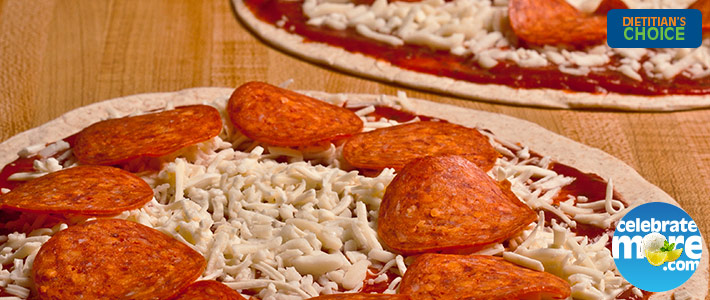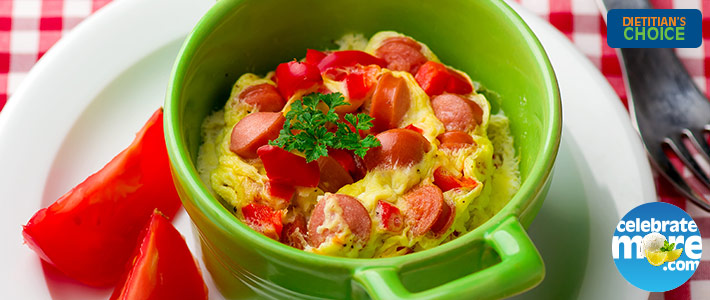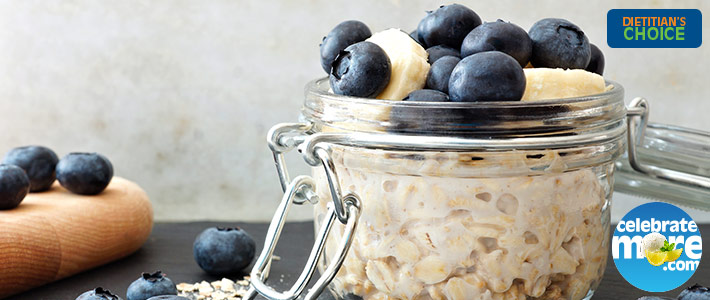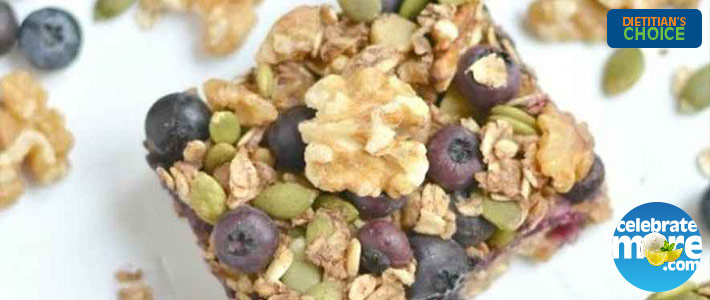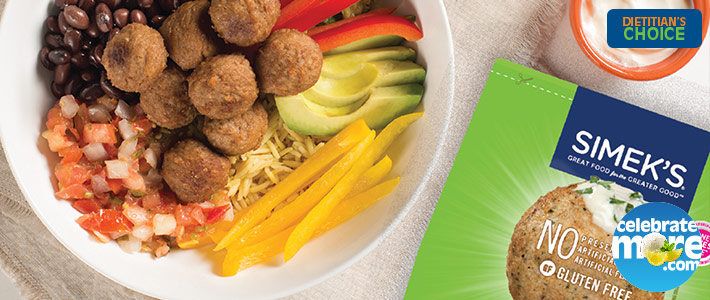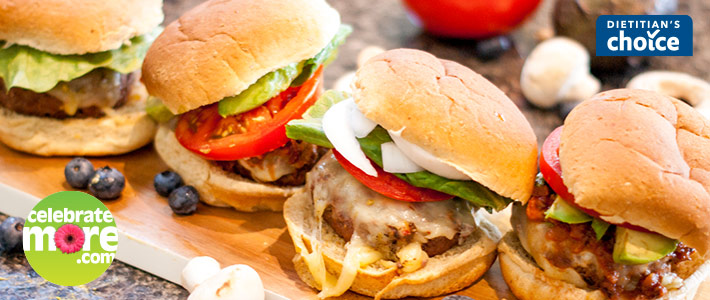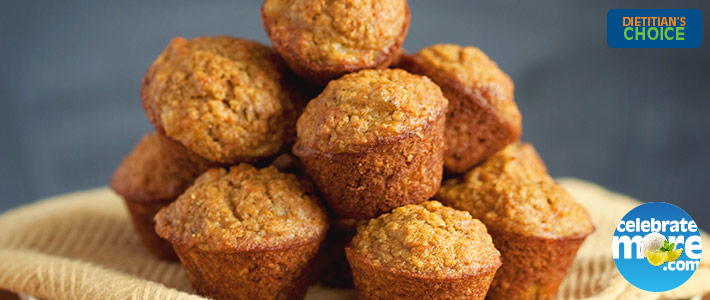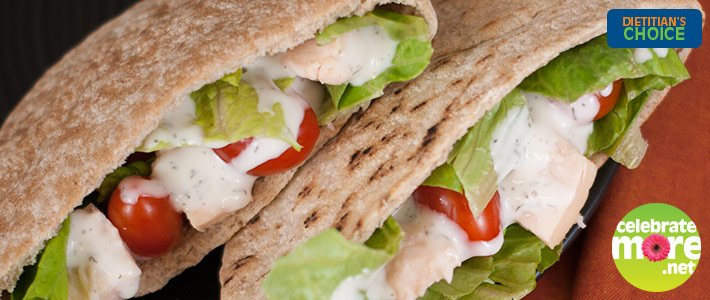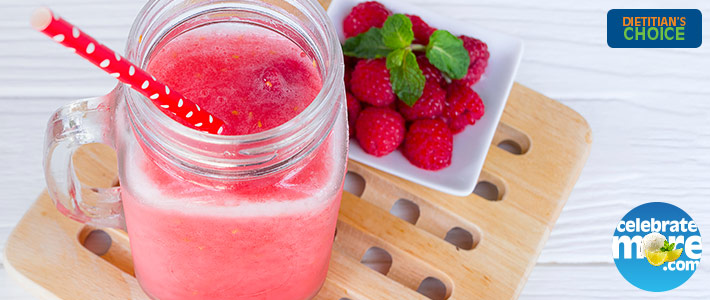Tags: Dietitian’s Choice
Pizza Roll-Ups
Omelet In A Cup
Blueberry Overnight Oats
Blueberry Protein Walnut Breakfast Bars
SIMEK’S Fiesta Turkey Meatball Bowl
The Blend Fiesta Burger
Strawberry Smoothie Pops
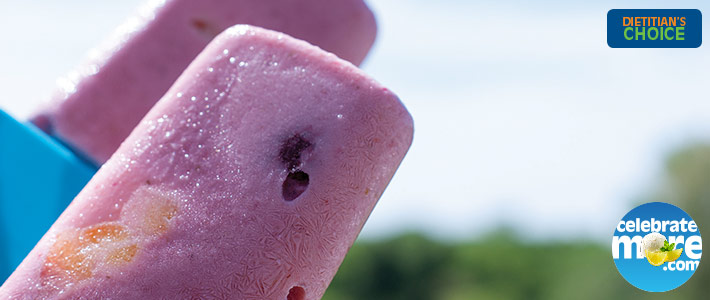
Strawberry Smoothie Pops
Ingredients:
- 2 Cups frozen berries
- 1 Cup non-fat vanilla Greek yogurt
- Splash of milk
- Chunks of frozen fruit
- 1 Tbsp. Ground flax seed (optional)
- 1 Tbsp. Chia seeds (optional)
Directions:
- Blend all of the ingredients (except a few chunks of frozen fruit) in a blender.
- Add milk as needed and blend until smooth.
- Add in chunks of frozen fruit and pour into popsicle molds.
- Let freeze overnight.
Zucchini & Carrot Breakfast Muffins
Cheese Please! Let’s Celebrate National Dairy Month!
It’s officially June! Up here in the Midwest, we are enjoying our beautiful summer weather. On a hot summer day, sometimes just an ice cold glass of milk, really hits the spot! We’re excited for the month of June because it is National Dairy Month!
Dairy products are a staple in the diet, I mean seriously, who doesn’t love cheese?! We’re talking all about our favorite dairy products and the high-quality nutrition behind them.
Nutritional Benefits
It’s recommended to choose low fat or fat-free dairy products because they:
- Contain calcium for bone growth and maintenance of overall bone health
- Contain potassium which may help support healthy blood pressure levels
- Are a good source of protein
– Did you know 1 Cup of 1% or Skim Cow’s milk contains 8 grams of protein? - May help reduce the risk of developing osteoporosis
How much dairy do you need per day?
Most adults should be getting 3 cups of dairy every day! Check out the full Daily Dairy Table from MyPlate.
Different Dairy Foods
We have so many types of dairy products out on the market today. We also have many dairy alternatives as well for individuals with other nutritional needs. Find more info on my article from last year which compares milk and milk alternatives.
- Milk
- Cheese
- Butter
- Yogurt
- Cottage cheese
- Kefir – haven’t tried it or heard of it? It’s a fermented yogurt drink that is a good source of protein! It’s also 99% lactose and contains active live culture (probiotics) to help promote good gut health. It’s high in protein, calcium and vitamin D
- Ice cream & Frozen Yogurt – watch your portion size, but it’s a great sweet treat every once in a while. Keep an eye out for added sugar.
Ways to incorporate dairy:
Keep in mind your proper daily intake and your serving sizes listed in the chart above. For those looking for new ideas on how to incorporate diary into your diet, here are a few tips!
- Add yogurt, milk, kefir, or cottage cheese to a fresh fruit smoothie for breakfast
- Aim for a yogurt with less than 10 grams of sugar if possible. Also, look for the Dietitian’s Choice logo on the shelf tag throughout the store for items approved as Better for You options by our team of Registered Dietitians.
- Enjoy kefir, kefir cups, yogurt, cottage cheese with fruit for a snack
- Add savory flavors to cottage cheese if you don’t have a sweet tooth
- Consume milk with meals
- Add low-fat / non-fat cheese slices to sandwiches
- Consume cheese with a snack such as cheese & whole grain crackers
Food Safety is Always the Most Important!
- Please keep it safe by avoiding unpasteurized milk or other diary products made from unpasteurized milk
- Keep all dairy foods refrigerated to avoid health hazards
- Watch the expiration dates
- “Best if Used By” date – the last day the manufacturer expects the product to be good to consume
- “Sell By” date – is the last day the product should be sold in the store
Serving Size References
How well do you know what a serving size should be for different dairy products?
- 4 dice = to 1.5 oz. of cheese
- 1 slice of cheese
- 8 oz. glass of milk
- ½ cup of ice cream
- ½ cup of cottage cheese
- ½ yogurt or single serve container
- 8 oz. kefir drink
- ½ cup kefir cup or single serve container
Hopefully these tips will help you incorporate more dairy into your diets! If you have any questions, don’t forget you can reach out to us!
Amy, RD, LD
Coborn’s Supermarket Registered Dietitian
Chicken Souvlaki Pitas with Tzatziki
Chicken Souvlaki Pitas with Tzatziki
Ingredients:
- 1 Lb Boneless, Skinless Chicken Breast
- 1 Tbsp Olive Oil
- Salt & Pepper to taste
- 1 Cup English Cucumber, diced
- 1 Cup Romaine Lettuce, shredded
- 1 Cup Cherry Tomatoes, halved
- 4 Whole Wheat Pita Pockets
- 2 Tbsp Opa Tzatziki Sauce
Directions:
- Cook or grill chicken breast with any desired seasonings.
- Cut fully cooked chicken into 1 inch pieces.
- Fill each pita pocket with chicken, lettuce, tomatoes and cucumbers.
- Top with Tzatziki sauce and enjoy.
Dijon Crusted Pork Tenderloin
Mediterranean Diet Month
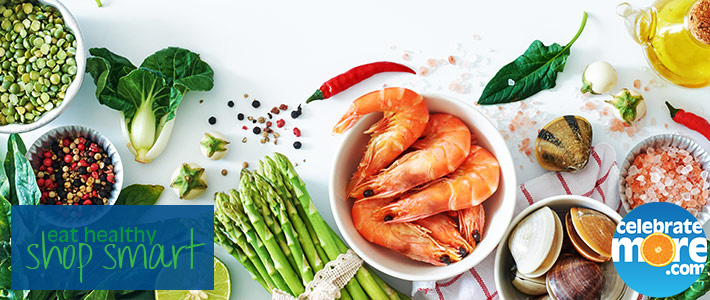
 It’s time to party! May is National Mediterranean Diet Month, so let’s celebrate! Among the many diets promoting health benefits, the Mediterranean Diet is one of the few I actually recommend. With emphasis on fruits, veggies, beans, nuts and seeds, whole grains, and healthy fats it’s an all-star diet that has been proven to reduce risk of heart disease, cancer, Parkinson’s and Alzheimer’s diseases. Sounds great, huh?
It’s time to party! May is National Mediterranean Diet Month, so let’s celebrate! Among the many diets promoting health benefits, the Mediterranean Diet is one of the few I actually recommend. With emphasis on fruits, veggies, beans, nuts and seeds, whole grains, and healthy fats it’s an all-star diet that has been proven to reduce risk of heart disease, cancer, Parkinson’s and Alzheimer’s diseases. Sounds great, huh?
While other diets are strict, the Mediterranean Diet leaves room for flexibility and emphasizes foods, without restriction.
Here are some key components:
- Eating primarily plant-based foods, such as fruits and vegetables, whole grains, legumes and nuts
- Replacing butter with healthy fats such as olive oil and canola oil
- Using herbs and spices instead of salt to flavor foods
- Limiting red meat to no more than a few times a month
- Eating fish and poultry at least twice a week
- Enjoying meals with family and friends
- Drinking red wine in moderation (optional)
- Getting plenty of exercise
As you can see, the idea behind the Mediterranean Diet is not only about including more of the foods that are good for us, but also including more healthy lifestyle behaviors such as eating with family and friends and getting exercise! I want to discuss one of the key components a little further—incorporating more healthy fats, such as olive oil into your meals.
There has been research showing quality evidence that plant oils, such as olive oil, have positive health benefits such as reducing risk for stroke and heart attack. Some fun facts about olive oil include:
- Contains antioxidants
- Has anti-inflammatory properties
- Has anti-bacterial properties
I recommend using extra-virgin olive oil or EVOO as this variety has the most health benefits. This is because EVOO is extracted from olives using only pressure (a process called cold pressing). Olive oil is great drizzled over a salad, mixed into a salad dressing, used in marinades for meat, fish, poultry or veggies, drizzled over whole grain pasta, and much much more!
You can also try including other unsaturated fats like olive oil in your diet such as fatty fish (tuna, mackerel, salmon, sardines), nuts, seeds, and avocado.
Healthy and Happy Eating,
Emily

Mediterranean diet: A heart-healthy eating plan. (2017, November 3). Retrieved from https://www.mayoclinic.org/healthy-lifestyle/nutrition-and-healthy-eating/in-depth/mediterranean-diet/art-20047801






